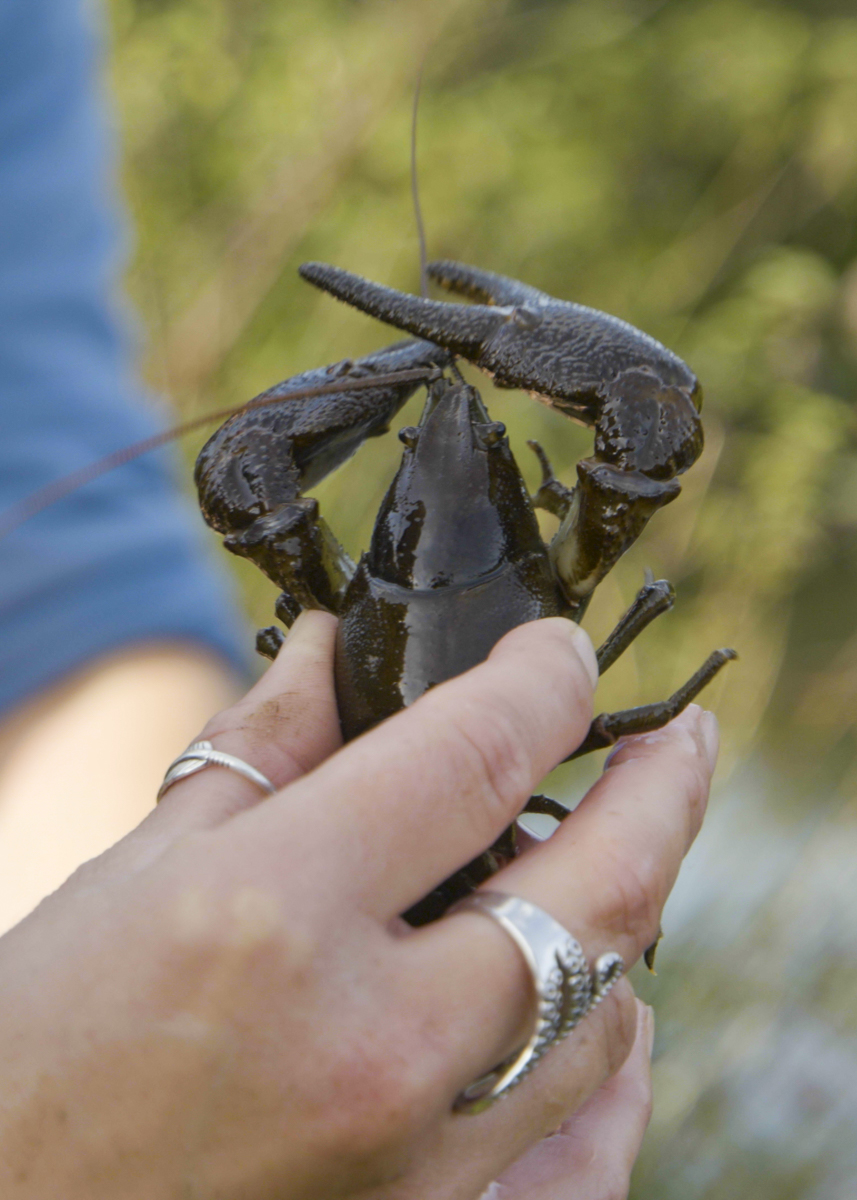Endangered crayfish released into an ark site
Blackdown Hills AONB have been working closely with Wild Planet Trust, Bristol Zoological Society, Nicky Green Associates, and the Environment Agency to organise the release a dozen endangered white-clawed crayfish into an ‘ark site’ in the Blackdown Hills – a safe privately-owned waterbody where it is hoped the crustaceans will breed.
Wild Planet Trust works with a number of organisations and local volunteers who survey the remaining locations of white-clawed crayfish in Devon on the Rivers Creedy, Yeo and Culm to ascertain the status of the species. Alongside this work, a major part of the project is finding and developing ark sites for captive-bred crayfish to live.
White-clawed crayfish are the only crayfish native to the UK. They are listed as endangered on the IUCN Red List, with threats mostly from non-native, invasive crayfish such as the American signal crayfish, which outcompete the white-clawed crayfish and carry a fungal disease – crayfish plague – that is lethal to white-clawed crayfish. Populations are in decline and, unless action is taken, will disappear from Devon in the next 10 years.
The animals were captive-bred at the Bristol Zoological Society’s crayfish hatchery and twelve of these breeding-age crayfish were released at the Devon ark site, an isolated water body secure from the invasive American signal. The date of the release coincided with the start of their breeding season, so there is hope that the population will begin to increase in the coming years. Further releases of younger crayfish are planned for this site in the future.
The release of these animals is a vital step to securing the future of white-clawed crayfish in Devon.
Read more about Crayfish in the Blackdown Hills






